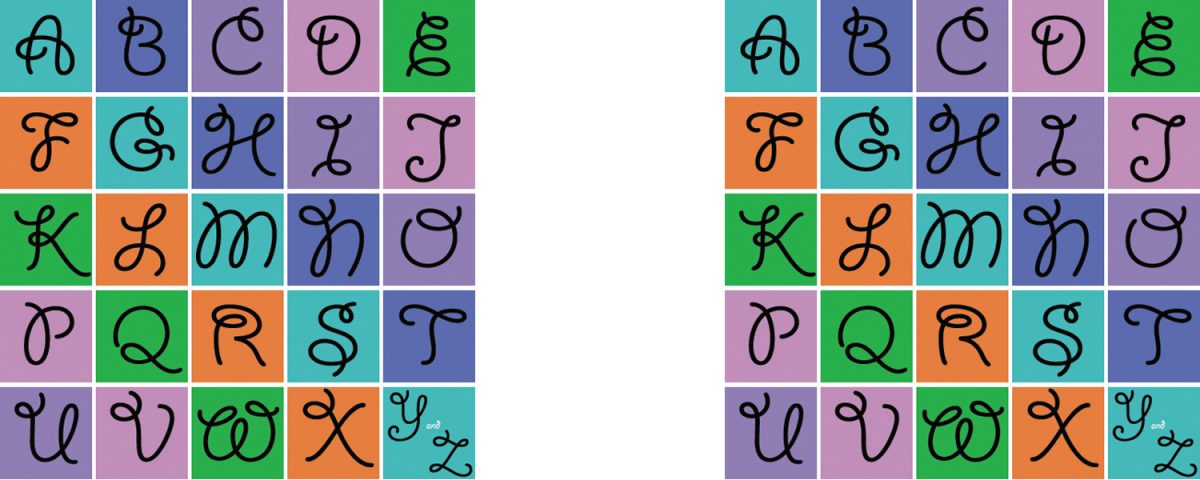The ABCs of life in France
In my 33rd year in Paris, here is an ABCs of life in France (the French call that an abécédaire, from the Latin abecedarium, which gave us the English rarely-used-outside-of-academia “abecedary,” which is sometimes employed to denote not only the document containing the alphabetic list but also the teacher or learner of the contents of the document, who can likewise be referred to as an “abecedarian”) of random fascinating facts and figures about France and Paris that for the most part are inhaled, absorbed, stumbled upon during decades of presence as opposed to learned in lectures, browsed in books, witnessed on websites. In other words, to know this stuff, ya gotta be here:
ABCs of life in France Part 1 Letters A to H – Here’s the link
ABCs of life in France Part 2 Letters I to P – Here’s the link
ABCs of life in France Part 3 Letters Q to Z – Here’s the link
 is for Queen: Or, if you will, king, princess, prince, duchess, duke, you-get-the-picture. Make no mistake about it: France, as of this writing, is only 170 years removed from royal rule (no, the monarchy did not end with the French Revolution of 1789; it ended with the French Revolution of 1848). In a history whose first written traces appeared during the Iron Age, that is a microscopic jot of time. As much as France is now clearly committed to and passionately proud of being a republic, vestiges of the throne are unavoidably, unapologetically, naturally omnipresent: in speech (le client est roi — “the client is king” = “the customer is always right”; lettres de noblesse — literally, “letters of nobility” = “good reputation, good credentials”), in architecture (as witness all those re-purposed palaces serving as government buildings, such as the president’s Elysée Palace and the Senate’s Palais de Luxembourg) and in the occasional slip of the tongue (as when an event organizer suggests January 21 for the fund-raising gala and an august member of the planning committee decrees, “We cannot hold it on that date! That was when the king was beheaded!”
is for Queen: Or, if you will, king, princess, prince, duchess, duke, you-get-the-picture. Make no mistake about it: France, as of this writing, is only 170 years removed from royal rule (no, the monarchy did not end with the French Revolution of 1789; it ended with the French Revolution of 1848). In a history whose first written traces appeared during the Iron Age, that is a microscopic jot of time. As much as France is now clearly committed to and passionately proud of being a republic, vestiges of the throne are unavoidably, unapologetically, naturally omnipresent: in speech (le client est roi — “the client is king” = “the customer is always right”; lettres de noblesse — literally, “letters of nobility” = “good reputation, good credentials”), in architecture (as witness all those re-purposed palaces serving as government buildings, such as the president’s Elysée Palace and the Senate’s Palais de Luxembourg) and in the occasional slip of the tongue (as when an event organizer suggests January 21 for the fund-raising gala and an august member of the planning committee decrees, “We cannot hold it on that date! That was when the king was beheaded!”
 is for Rain: Looking back on any given year in Paris, there seems to have been merely a trickle of non-rainy, non-barbarously windy, non-frigorified, non-massive-mold-build-up-in-closets-due-to-industrial-strength-humidity (usually all at the same time) days: several in July, a handful in August, a few in September, some in October. Every songwriter from the 12th-century troubadours to Cole Porter who ever included any of the following words in their compositions about the city must have had the good fortune to rove or land on one of these days: clear skies, sun, warm breeze.
is for Rain: Looking back on any given year in Paris, there seems to have been merely a trickle of non-rainy, non-barbarously windy, non-frigorified, non-massive-mold-build-up-in-closets-due-to-industrial-strength-humidity (usually all at the same time) days: several in July, a handful in August, a few in September, some in October. Every songwriter from the 12th-century troubadours to Cole Porter who ever included any of the following words in their compositions about the city must have had the good fortune to rove or land on one of these days: clear skies, sun, warm breeze.
 is for Sports–and safe–and soccer: Sports is a safe conversation-topic, especially soccer, which is called “football” (à la Real Madrid) and not to be confused with “football” (à la Green Bay Packers). Food is another safe topic: anticipating it, acquiring ingredients to prepare it, preparing it, preparing oneself to consume it, consuming it, comparing it, contrasting it, criticizing it, praising it. Unsafe topics are religion, politics and, above all, money. Steeped in almost two millenniums of clergy (France is sometimes called “the eldest daughter of the Church,” with Avignon’s Palais des Papes [Palace of the Popes] having housed nine popes in the 14th century) and kings, France’s relationship with money has always been guilt-ridden at worst and self-conscious at best. In Protestant countries, money means the well-deserved fruits of strict respect for and adherence to the Work Ethic–and it is thus a source of pride. In France, money means that generations of your family have not been otherwise occupied transcribing illuminated manuscripts by candlelight, tending to lepers, chanting psalms at dawn in tattered muslin robes in a sub-freezing Breton wasteland. Or it means that given that you’re touching it, you’re obviously not the king–and it is thus a source of embarrassment.
is for Sports–and safe–and soccer: Sports is a safe conversation-topic, especially soccer, which is called “football” (à la Real Madrid) and not to be confused with “football” (à la Green Bay Packers). Food is another safe topic: anticipating it, acquiring ingredients to prepare it, preparing it, preparing oneself to consume it, consuming it, comparing it, contrasting it, criticizing it, praising it. Unsafe topics are religion, politics and, above all, money. Steeped in almost two millenniums of clergy (France is sometimes called “the eldest daughter of the Church,” with Avignon’s Palais des Papes [Palace of the Popes] having housed nine popes in the 14th century) and kings, France’s relationship with money has always been guilt-ridden at worst and self-conscious at best. In Protestant countries, money means the well-deserved fruits of strict respect for and adherence to the Work Ethic–and it is thus a source of pride. In France, money means that generations of your family have not been otherwise occupied transcribing illuminated manuscripts by candlelight, tending to lepers, chanting psalms at dawn in tattered muslin robes in a sub-freezing Breton wasteland. Or it means that given that you’re touching it, you’re obviously not the king–and it is thus a source of embarrassment.
 is for Time: Paris is in the middle between stringent, everyone’s-their-own-policeman, unforgiving, colder-climate Lille and Germany, to the north (where being late is rarely even up for discussion let alone a habitual activity) and laid-back, carefree, anything-goes, warmer-climate Marseille and Italy, to the south (where time is a subjective, elastic concept). In Paris, it’s OK–in fact, expected–that you’ll be fifteen-or-so minutes late to the meeting or dinner party, but, as opposed to the practice in some countries far down on the map, you basically have to show up or alert those expecting you that you’ve had an empêchement (“a hitch in your plans”).
is for Time: Paris is in the middle between stringent, everyone’s-their-own-policeman, unforgiving, colder-climate Lille and Germany, to the north (where being late is rarely even up for discussion let alone a habitual activity) and laid-back, carefree, anything-goes, warmer-climate Marseille and Italy, to the south (where time is a subjective, elastic concept). In Paris, it’s OK–in fact, expected–that you’ll be fifteen-or-so minutes late to the meeting or dinner party, but, as opposed to the practice in some countries far down on the map, you basically have to show up or alert those expecting you that you’ve had an empêchement (“a hitch in your plans”).
 is for Underwear–women’s and men’s: gorgeous, delicate, intricate, expensive, beguiling, enthralling, captivating, unabashedly splashed in advertising-campaign imagery all over metro-corridor walls, bus-stop shelters, billboards, television, and on mannequins in lingerie-shop windows. Yes, where children can see it: For the most part, parents think nothing’s wrong with the appreciation, at any age, of a beautiful body beautifully bedecked.
is for Underwear–women’s and men’s: gorgeous, delicate, intricate, expensive, beguiling, enthralling, captivating, unabashedly splashed in advertising-campaign imagery all over metro-corridor walls, bus-stop shelters, billboards, television, and on mannequins in lingerie-shop windows. Yes, where children can see it: For the most part, parents think nothing’s wrong with the appreciation, at any age, of a beautiful body beautifully bedecked.
 is for Valentine (the “ine” is pronounced “een” in this feminine version of Valentin), a perfectly normal, unremarkable first name. As are Balthazar, Gaspard and Melchior (a bit more remarkable but not shocking). And Tristan, Josephine, Marie-Antoinette. A French Mathilde will not be assumed to be hickish or old-maidesque. A French Xavier will not be assumed to be in training to lead a conga band. Marine and Océane are women who might never go near the sea. Bénédict certainly does not conjure up the historical association that it does in American English (enough said!). After World War II, France was a relatively popular name for girls, a way of celebrating the country’s survival. One of the best animal names encountered was that of a typically squat bulldog: As he lingered at his patch of grass, his impatient owner tugged at the leash and pleaded, “Napoléon! Napoléon! Come on!”
is for Valentine (the “ine” is pronounced “een” in this feminine version of Valentin), a perfectly normal, unremarkable first name. As are Balthazar, Gaspard and Melchior (a bit more remarkable but not shocking). And Tristan, Josephine, Marie-Antoinette. A French Mathilde will not be assumed to be hickish or old-maidesque. A French Xavier will not be assumed to be in training to lead a conga band. Marine and Océane are women who might never go near the sea. Bénédict certainly does not conjure up the historical association that it does in American English (enough said!). After World War II, France was a relatively popular name for girls, a way of celebrating the country’s survival. One of the best animal names encountered was that of a typically squat bulldog: As he lingered at his patch of grass, his impatient owner tugged at the leash and pleaded, “Napoléon! Napoléon! Come on!”
 is for Waste: considerably less generated in France–and much of Europe–than in some countries that did not know war-related penury (whose legacy dies hard). You need to write down an address for someone? You take the big piece of paper in front of you and tear a smidgen from the bottom. That leaves you enough paper to write at least a dozen more addresses for a dozen more requesters. You order a muffin in a tea room? You get a muffin, on a muffin-sized plate. Not an entire cake on a dinner plate. People wonder why there are no doggie bags in France (although that is beginning to change). With serving sizes big enough to satisfy but small enough to suffice, there hasn’t been a need for them!
is for Waste: considerably less generated in France–and much of Europe–than in some countries that did not know war-related penury (whose legacy dies hard). You need to write down an address for someone? You take the big piece of paper in front of you and tear a smidgen from the bottom. That leaves you enough paper to write at least a dozen more addresses for a dozen more requesters. You order a muffin in a tea room? You get a muffin, on a muffin-sized plate. Not an entire cake on a dinner plate. People wonder why there are no doggie bags in France (although that is beginning to change). With serving sizes big enough to satisfy but small enough to suffice, there hasn’t been a need for them!
 is for Xenophobia: However xenophobic or not any given French person may be, the assessment of “the other” is based on what enters through the mind and the senses–the perception of difference, the physical characteristics seen, the languages heard, the odors seeping through the neighbors’ kitchen windows. What it cannot be based on is statistics, registries, data bases, as it is forbidden to ask for and thus to specify race, ethnicity, nationality, religion, native language on official forms such as those used for the census, voter registration, driver’s license applications, etc. In the land of Liberté, Egalité, Fraternité, “absolute equality”–relating to each person as an individual as opposed to as a member of a distinct group–is considered the best vehicle for integrating all citizens, to the benefit of the citizens and the state. The degree to which French people take seriously and defend this concept and practice is impressive.
is for Xenophobia: However xenophobic or not any given French person may be, the assessment of “the other” is based on what enters through the mind and the senses–the perception of difference, the physical characteristics seen, the languages heard, the odors seeping through the neighbors’ kitchen windows. What it cannot be based on is statistics, registries, data bases, as it is forbidden to ask for and thus to specify race, ethnicity, nationality, religion, native language on official forms such as those used for the census, voter registration, driver’s license applications, etc. In the land of Liberté, Egalité, Fraternité, “absolute equality”–relating to each person as an individual as opposed to as a member of a distinct group–is considered the best vehicle for integrating all citizens, to the benefit of the citizens and the state. The degree to which French people take seriously and defend this concept and practice is impressive.
 is for Yesterday–otherwise known as history–which Americans, Canadians, Australians, New Zealanders are seen by the French as not having. “Well, in any case, that’s understandable, since you don’t have a history!” you will hear your Gallic hosts declaring in answer to some opinion you might express. “If you had a history in your country, you’d surely see this differently!” Pointing out that had our country been founded this morning we would still have a history (one consisting of merely several hours, but a history nonetheless) is useless. We were not around when ground was broken in 1163 for the construction of Notre Dame. We were not around when Charlemagne united central and western Europe early in the Middle Ages. We were not around when Vercingetorix lost the battle with Julius Caesar in 52 BC. So we have no history.
is for Yesterday–otherwise known as history–which Americans, Canadians, Australians, New Zealanders are seen by the French as not having. “Well, in any case, that’s understandable, since you don’t have a history!” you will hear your Gallic hosts declaring in answer to some opinion you might express. “If you had a history in your country, you’d surely see this differently!” Pointing out that had our country been founded this morning we would still have a history (one consisting of merely several hours, but a history nonetheless) is useless. We were not around when ground was broken in 1163 for the construction of Notre Dame. We were not around when Charlemagne united central and western Europe early in the Middle Ages. We were not around when Vercingetorix lost the battle with Julius Caesar in 52 BC. So we have no history.
 is for Zucchini–as in occasional pizza-topping–as in pizza. The French (and Italians and other Europeans) eat pizza with a knife and fork. You silently criticize them for being so prissy and treating savage finger-food as if it were a delicacy in a Michelin-starred restaurant. You silently criticize them for silently criticizing you for approaching your dough-cheese-tomato sauce (and zucchini) like such an animal. But then something happens. One day, as your French fellow diners are busy shaving little civilized slivers off the edge of the wedge on their plate, your hands start shoving a massive slice halfway down your throat then…suddenly…stop. You look around. Smile sheepishly. Shrink a bit. Slowwwwwwly, self-consciously lay the slice down in front of you…pick up your cutlery…scream “You animal!” to yourself with your mind’s megaphone…and start cutting.
is for Zucchini–as in occasional pizza-topping–as in pizza. The French (and Italians and other Europeans) eat pizza with a knife and fork. You silently criticize them for being so prissy and treating savage finger-food as if it were a delicacy in a Michelin-starred restaurant. You silently criticize them for silently criticizing you for approaching your dough-cheese-tomato sauce (and zucchini) like such an animal. But then something happens. One day, as your French fellow diners are busy shaving little civilized slivers off the edge of the wedge on their plate, your hands start shoving a massive slice halfway down your throat then…suddenly…stop. You look around. Smile sheepishly. Shrink a bit. Slowwwwwwly, self-consciously lay the slice down in front of you…pick up your cutlery…scream “You animal!” to yourself with your mind’s megaphone…and start cutting.
by Shari Leslie Segall, a writer in Paris
« Now you know your ABCs [of life in France], next won’t you sing [comment] with me! »



